Labour MSP Anne McTaggart is behind the billpublished at 10:47
Labour MSP Anne McTaggart, who is behind the bill, is also present today.
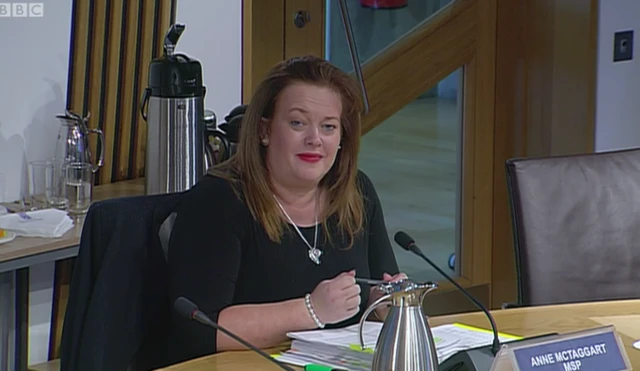 Image source, Labour MSP Anne McTaggart
Image source, Labour MSP Anne McTaggartLabour MSP Anne McTaggart
FOR LIVE COVERAGE SCROLL DOWN
MSPs took evidence on legislation proposing an opt-out register for organ donation
The first minister and Scottish party leaders expressed their condolences to the people of Paris, following last Friday's terrorist attacks
MSPs debated how best to scrutinise intergovernmental relations
The evening's member's debate celebrated Universal Children's Day 2015
Craig Hutchison
Labour MSP Anne McTaggart, who is behind the bill, is also present today.
 Image source, Labour MSP Anne McTaggart
Image source, Labour MSP Anne McTaggartLabour MSP Anne McTaggart
Health Committee convener Duncan McNeil introduces the witnesses.
Mr McNeil thanks all witnesses, including organ recipients and donor families, who gave evidence in formal sessions in the last two weeks.
MSPs will now take evidence on the Transplantation (Authorisation of Removal of Organs etc.) (Scotland) Bill.
Dr Sue Robertson, a member of BMA Scottish Council and renal physician in Dumfries, BMA Scotland; Jordan Linden from the Scottish Youth Parliament; Lindsay Paterson from the Royal College of Physicians of Edinburgh and Dr James Cant from the British Heart Foundation Scotland will give evidence.
The British Heart Foundation says "the current organ donation system simply doesn't work."
Despite decades of campaigning to encourage people to join, and the fact that 90 per cent of the public say they support organ donation, the number of people on the register remains at only 32 per cent across the UK.
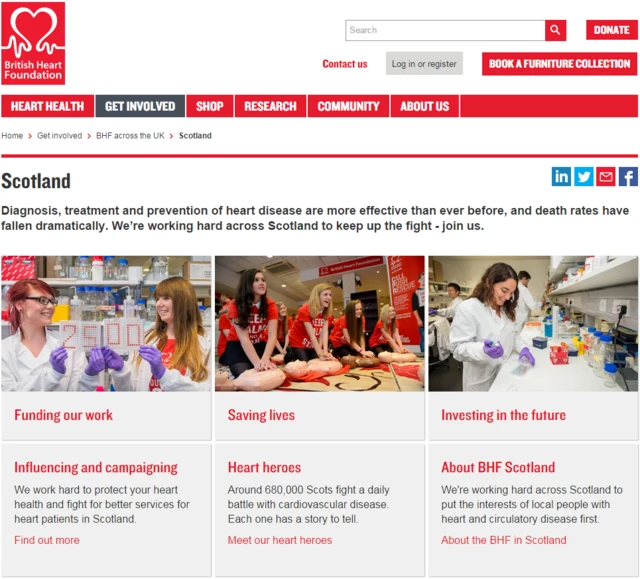 Image source, British Heart Foundation Scotland
Image source, British Heart Foundation ScotlandBritish Heart Foundation Scotland
BHF Scotland supports the following three calls:
• Changing the system of registration from opt-in to soft-opt out
• Continued investment in infrastructure and staff training
• Encouraging families to have open conversation about organ donation
The Royal College of Physicians of Edinburgh is warning switching to an 'opt-out' system of organ donation in Scotland could lead to rows between medics and relatives.
The RCPE says that could put clinicians in the difficult position of harvesting organs in the face of explicit opposition from relatives.
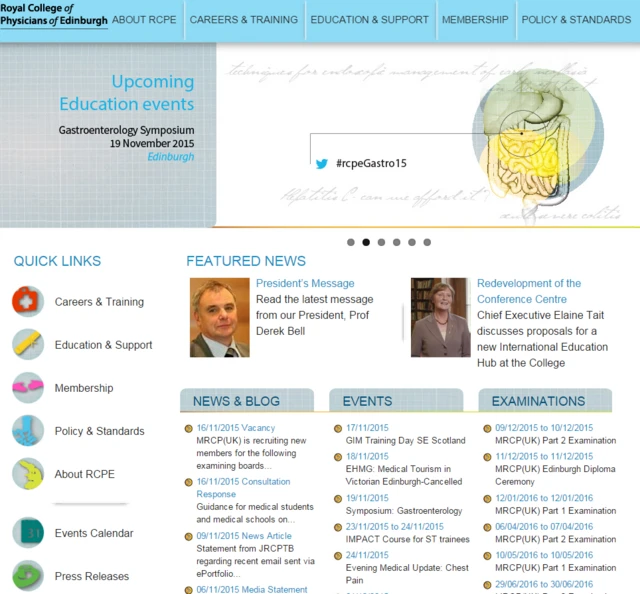 Image source, RCPE
Image source, RCPEThe College has received mixed views on this issue.
The College has previously stated support for moves to a soft opt-out system provided there is a parallel process of public education about the benefits of organ donation and improved infrastructure to support families and clinical teams at the time of organ donation
BMA Scotland, external has been actively campaigning for a shift to an opt-out system for organ donation since 1999.
The reasons for this can be summarised as follows:
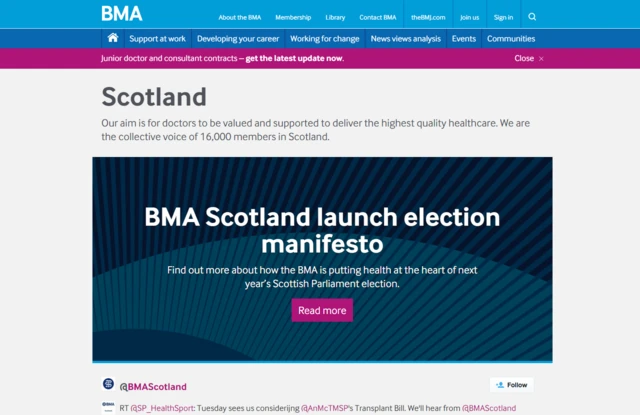 Image source, BMA Scotland
Image source, BMA ScotlandBMA Scotland
Committee Convener Duncan McNeil says before moving on to the transplantation evidence session, they will discuss palliative care, as they are ahead of schedule.
Mr McNeil says they will now go into private session.
Plans to introduce a in Scotland were published at Holyrood.
Labour's Anne McTaggart has support from MSPs of all parties for her bill.
The current "opt-in" system requires a proactive choice by an individual to register to become an organ donor on their death.
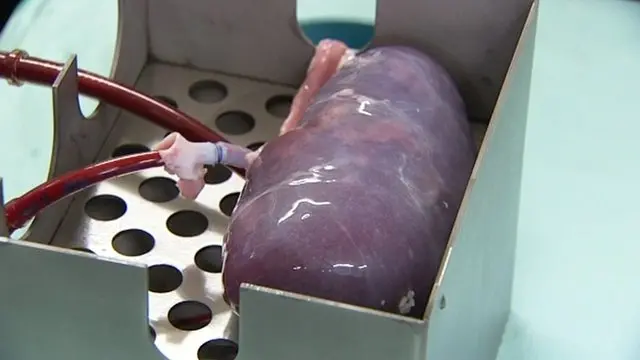
The Scottish government said it would examine the bill to see if a "convincing case" could be made for a move to an opt-out system.
The new legislation would mean people would have to actively opt out or else their name would be added to the NHS Organ Donation Register.
Under the terms of the "soft opt-out" system, families of deceased patients would be given a say on donation if they could confirm their relative had made an unrecorded objection during their lifetime.
MSPs will then take evidence on the Transplantation (Authorisation of Removal of Organs etc.) (Scotland) Bill, external.
Dr Sue Robertson, a member of BMA Scottish Council and renal physician in Dumfries, BMA Scotland; Jordan Linden from the Scottish Youth Parliament; Lindsay Paterson from the Royal College of Physicians of Edinburgh and Dr James Cant from the British Heart Foundation Scotland.
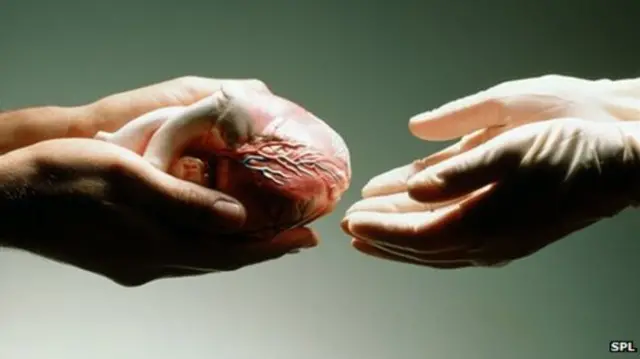 Image source, SPL
Image source, SPLThat brings the Stage 2 proceedings for the Smoking Prohibition (Children in Motor Vehicles) (Scotland) Bill to a close and there will now be a brief suspension.
Public Health Minister Maureen Watt says she has committed to a campaign to make sure the public are aware of the new law.
The amendment on joint enforcement is unanimously backed by the committee.
Public Health Minister Maureen Watt rejects the Conservative call for a sunset clause.
Lib Dem MSP Jim Hume agrees that a sunset clause is not needed.
A series of Scottish government amendments are unanimously agreed by the committee.
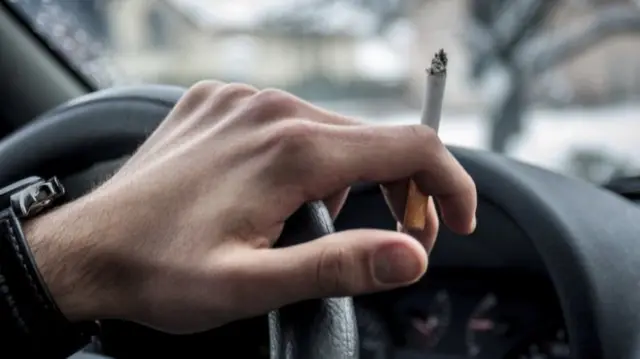
Lib Dem MSP Jim Hume speaks to his amendment calling for a joint enforcement regime.
Environmental health officers and Police Scotland should work together he says.
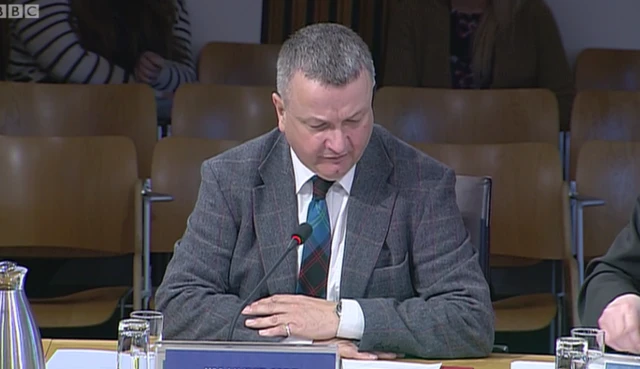
Lib Dem MSP Jim Hume
The minister then asks the committee to reject Labour Malcolm Chisholm's amendments making the driver vicariously liable for anyone smoking in the car.
Lib Dem MSP Jim Hume, who is the member that introduced the bill, also rejects the amendments.
Mr Chisholm withdraws his amendments.
Public Health Minister Maureen Watt says applying an offence to the driver is problematic.
Ms Watt cites the example of a young driver having to ensure an older passenger does not smoke.
It would make an adult responsible for another adult's offence, says the minister.
She says it should be the person smoking who is responsible for that offence.
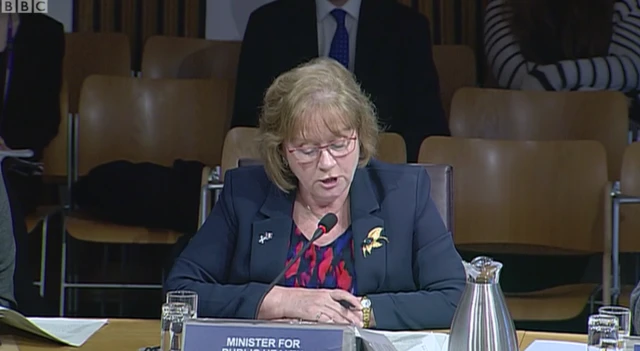 Image source, bbc
Image source, bbcPublic Health Minister Maureen Watt
The bill to ban smoking in cars carrying children passed its first hurdle in the Scottish Parliament.
MSPs voted unanimously in favour of the general principles of the legislation, which aims to protect children from the effects of second-hand smoke.
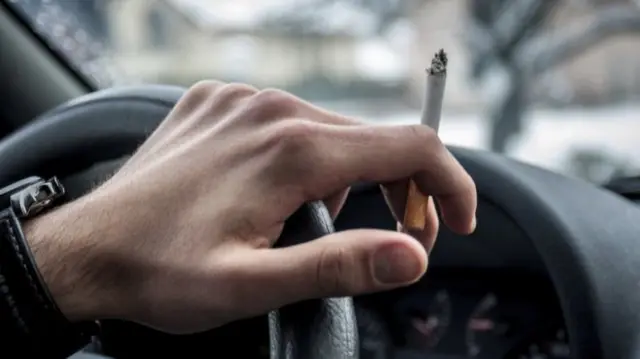
It could mean fines of up to £100 for smokers who light up in a car with a young passenger.
The member's bill was introduced by the Liberal Democrat MSP Jim Hume.
The Smoking Prohibition (Children in Motor Vehicles) (Scotland) Bill had previously been backed in principle by the Scottish government, Scottish Labour and health charities.